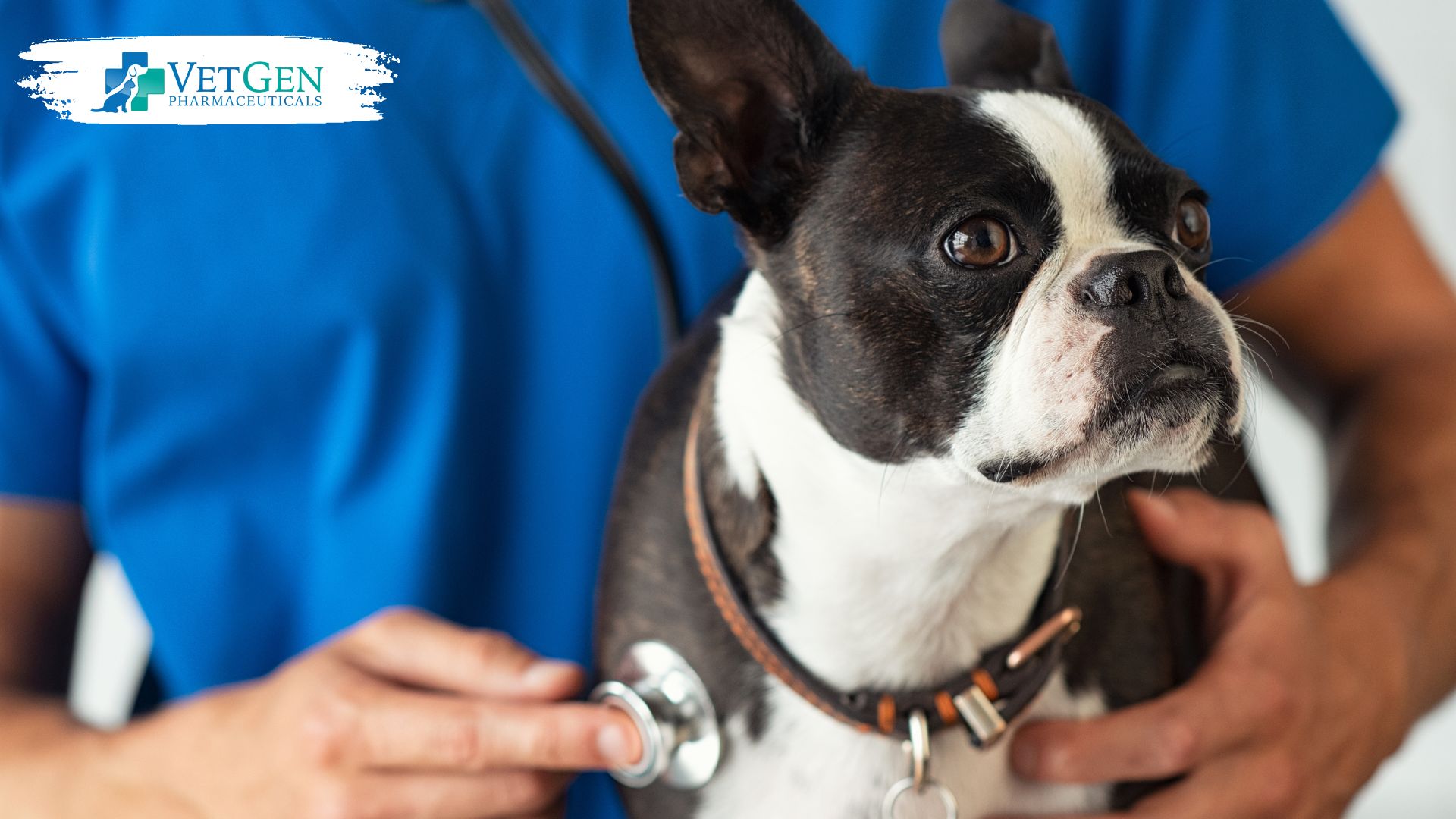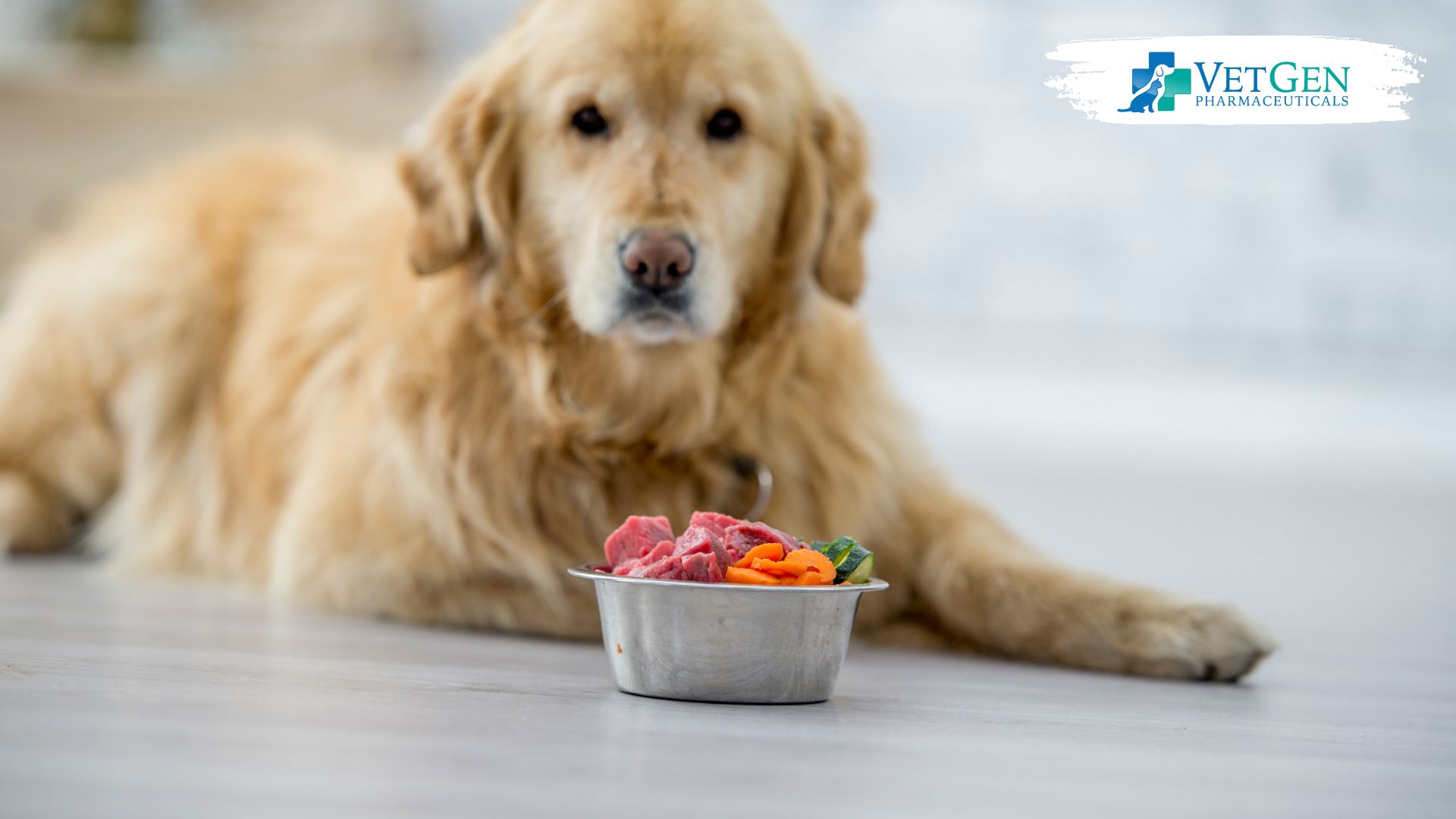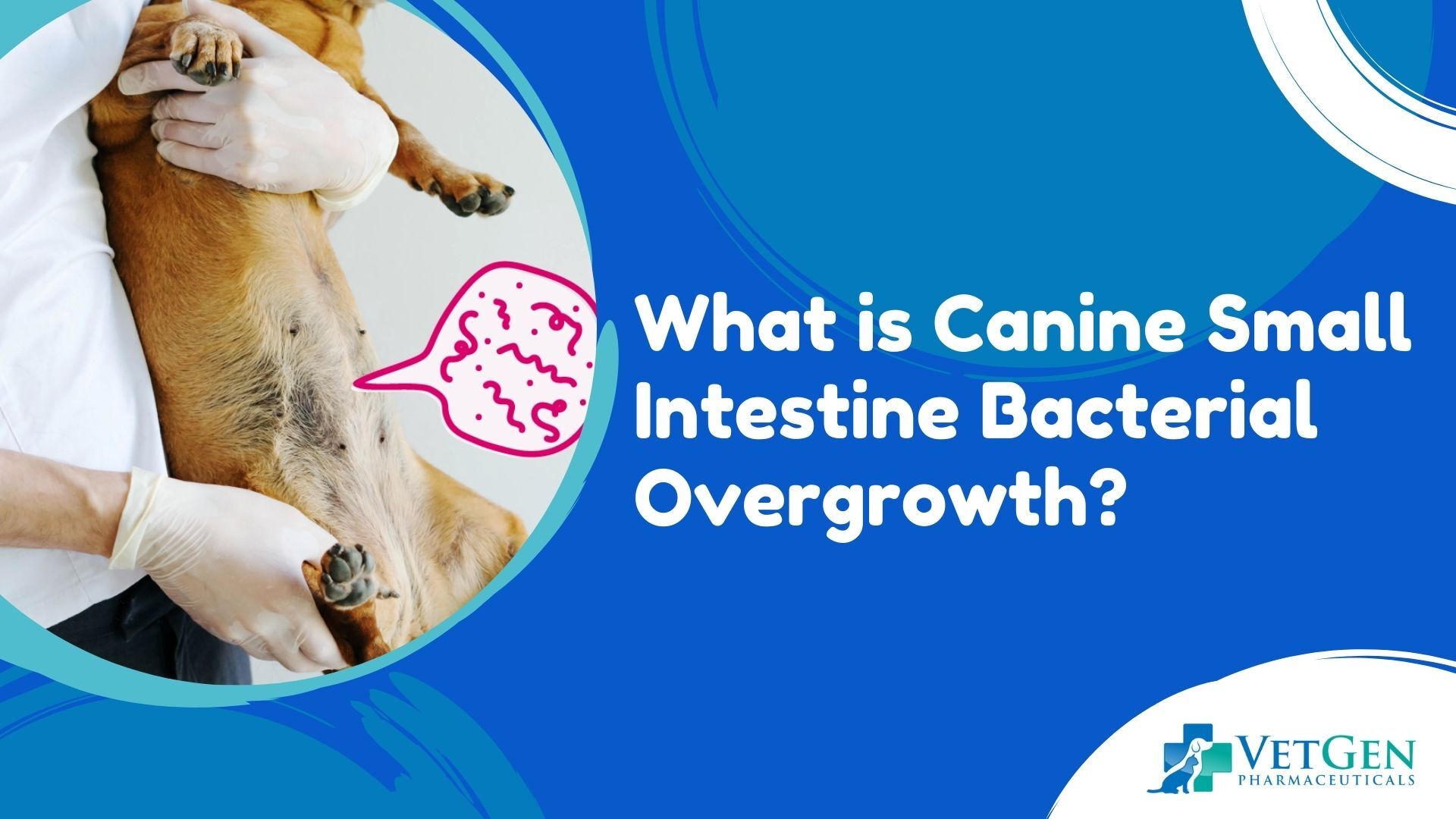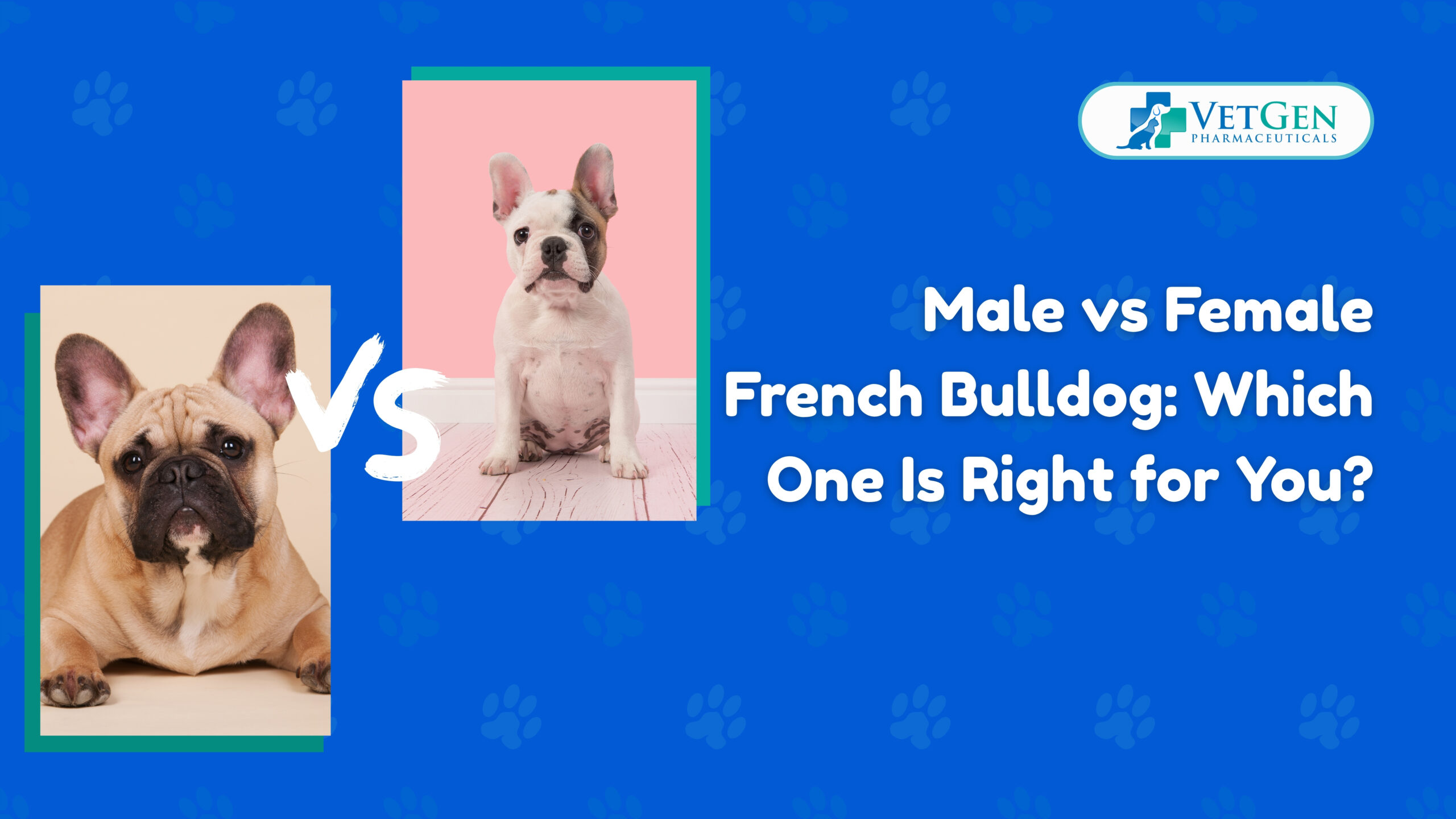Canine Small Intestine Bacterial Overgrowth (SIBO) is a condition that affects the gastrointestinal tract and results from an overpopulation of bacteria within part or all of this area. The small intestine typically has far fewer bacteria than the large intestine, where most gut bugs are housed. But if bacteria overgrow in parts of the small intestine, then it can affect normal digestion and absorption of various nutrients, leading to multiple health problems within the dog. SIBO is difficult to diagnose and treat, but with the right knowledge and management, impacted dogs can experience notable ease.
SIBO is largely misunderstood and can sometimes be mistaken for other gastrointestinal disorders like Inflammatory bowel disease in dogs(IBD) or Irritable bowel syndrome (IBS). However, it is important to emphasize that SIBO represents a distinct identity requiring unique diagnostic and therapeutic strategies.
Causes of SIBO in Dogs
Canine Small Intestine Bacterial Overgrowth develops due to a variety of reasons and it can manifest as either an idiopathic entity or may be secondary to another medical problem. In most cases, the source of the small intestinal bacterial overgrowth may not be detected.
When the transit of food and waste through your digestive system decelerates, it gives rise to the overgrowth of germs because bacteria get more space in which they can multiply.
Partial obstructions, motility disorders— like gastroparesis or intestinal pseudo-obstruction — and medications that slow small intestine transit are some factors that can hinder regular movement in the gut to eventually allow SIBO.
Another provoking mechanism could be a shift in the immune system of the gut. The gut hosts a sophisticated immune system responsible for controlling bacterial burdens and avoiding overgrowth. Disease, drugs, or diet can disturb this system and lead to an overgrowth of bacteria.
In addition, several dogs also develop SIBO secondary to exocrine pancreatic insufficiency in dogs. Exocrine pancreatic insufficiency (EPI) is a disorder characterized by a deficiency of the exogenous enzymes resulting in maldigestion. This can make the small intestine a more hospitable place for bacteria to grow. Conditions like inflammatory bowel disease or chronic intestinal infections can also give rise to SIBO.

Symptoms of SIBO in Dogs
You may be surprised to learn that many of the symptoms and signs are things you might attribute to just a doggie upset stomach… but instead, they can be SIBO. Symptoms of Canine Small Intestine Bacterial Overgrowth can vary from mild to severe and often mimic other gastrointestinal disorders, making it difficult to diagnose based on clinical appearance alone. Chronic diarrhea in dogs, can either present as loose, watery stools or may be in the form of a more typical pattern with intermittent periods of diarrhoeal stooling and normal stool consistency.
You will likely notice with the new outset of acute diarrhea and SIBO, that your dog appears to be losing weight. This overgrowth is problematic because it hinders the correct absorption of food in the small intestine causing malnutrition. Common clinical signs include rapid breathing, lung sounds and mucus in the tracheal tube, abdominal distension, and multiple episodes of retching and vomiting.
Also, the coat of a dog with Canine Small Intestine Bacterial Overgrowth can become dull or cause hair loss as their bodies cannot absorb nutrients. Severe cases of this syndrome can also cause your pet to become lethargic, dehydrated, and have electrolyte problems. If you do not treat SIBO sooner, it can be very tough on your dog’s immune system and quality of life.

Diagnosing SIBO in Dogs
Unfortunately, SIBO can be difficult to diagnose because many of the symptoms seen in this condition are also found in other GI disorders. Diagnosis requires a complete medical history, physical examination, and diagnostic testing. Veterinarians may conduct various tests to confirm the diagnosis of SIBO.
You may also want to do some blood tests (e.g. complete blood count and biochemistry profile) for general health as well as screen for potential malnutrition or other underlying causes of chronic diarrhea, such as EPI which might be masked if a low-fat diet is being fed. The diagnostic gold standard of SIBO is the duodenal fluid culture. It means taking a fluid sample from the small intestine and measuring what bacteria it contains.
However, invasive procedures are not always feasible or necessary. Sometimes, veterinarians will treat the dog according to clinical signs and response without going invasive.

Treating SIBO in Dogs
Treatment of SIBO in dogs typically involves management of the condition that triggered it and a reduction (or wipe-out) method for bacterial overgrowth. The bacterial population is often controlled with a course of broad-spectrum antibiotics (eg, metronidazole or tylosin) for several weeks.
Antibiotic therapy is an important part of the treatment of SIBO— non-pharmaceutical therapies such as dietary changes also work. You may be advised to feed your dog a low-fat diet that is easy for its small intestine and will produce less gas and bloating. This can be supported with probiotics which help to re-establish the balance of good gut bacteria in some dogs.
The treatment of secondary SIBO, when it develops due to EPI or inflammatory bowel disease, must include controlling the primary condition to avoid a repetition of bacterial overgrowth. In cases of EPI, this could require lifelong enzyme replacement therapy for dogs, or immunosuppressive medications when permitted.
Preventing SIBO in Dogs
Keeping the digestive system healthy in dogs and managing risk factors that can make a dog vulnerable to an overgrowth of harmful bacteria is important in preventing infections such as SIBO. SIBO is prevented by regular veterinarian visits, well-balanced diets, and attention to gastrointestinal problems.
Preventing SIBO in Dogs with Chronic Conditions such as EPI or IBD can involve chronic medical management with medications, lifelong monitoring, and routine blood work for signs of increased calcium levels.

Conclusion
For pets, small intestine bacterial overgrowth, or SIBO can become a big issue and without treatment, dogs will continue to be unwell. The key to managing the condition successfully is early recognition, accurate diagnosis, and appropriate treatment. By working together, using a combination of veterinary care, diet and products from reputable brands such as VetGen Pharmaceuticals, dogs with SIBO can have better health outcomes and an improved quality of life.
VetGen Pharmaceuticals is committed to helping veterinarians and pet owners manage canine gastrointestinal disorders. Their dedication to veterinary excellence and innovation will help dogs with SIBO get the care they need.
Frequently Asked Questions
Can SIBO in dogs be cured completely?
SIBO is often quite treatable with the appropriate intervention, although without addressing any underlying conditions it may return. Some dogs may require long-term management.
What kind of diet is recommended for a dog with SIBO?
Dogs suffering from SIBO should be fed a highly digestible, low-fat diet to minimize stress on the small intestine and maximize nutrient absorption.
Are probiotics helpful in treating SIBO in dogs?
Probiotics in dogs can be helpful to re-establish the normal gut condition and help with overall digestive health in dogs with SIBO.






